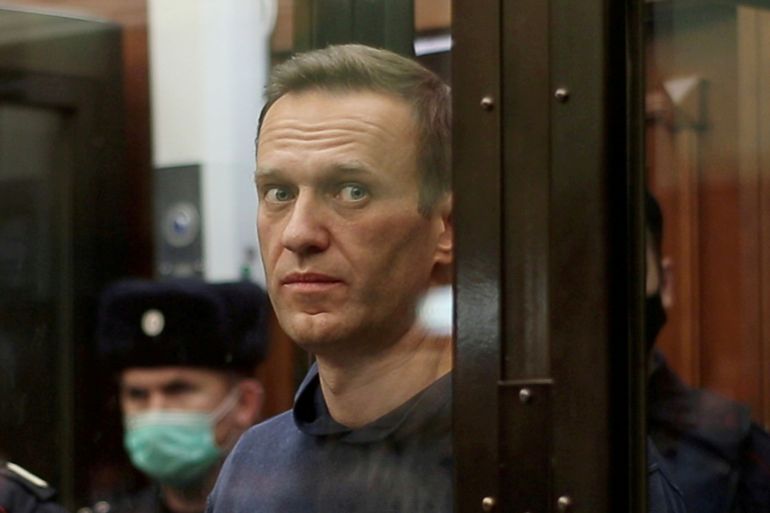European rights court calls on Russia to free Navalny immediately
European Court of Human Rights rules that Russia should release the Kremlin critic from jail, citing risks to his life.

The European Court of Human Rights (ECHR) ruled on Wednesday that Russia must release Kremlin critic Alexey Navalny from jail, citing risks to his life.
The court, based in Strasbourg, France, said in a statement that its order applied with “immediate effect”, warning that a failure to follow its ruling would mark a breach of the European human rights convention.
Keep reading
list of 4 itemsAlexey Navalny appears in court on defamation charges
Russia ready to cut ties with EU if hit with painful sanctions
Russia issues int’l arrest warrant for Navalny ally over protests
Navalny, 44, has been imprisoned in Russia since being arrested on January 17, when he returned to Moscow from Berlin.
He had been treated in the German capital following an alleged poisoning attack last year which he blames on Russian officials. Moscow denies any involvement in the August 2020 incident.
He was jailed on February 2 for almost three years over alleged parole violations of a suspended sentence linked to a 2014 embezzlement case. Navalny insists the case brought forward against him was politically motivated.
He lodged a complaint with the ECHR on January 20.
Moscow accuses ECHR of ‘crude interference’
The Russian Justice Ministry said it would not comply with any call from the ECHR to release Navalny, saying such a move could not be “executed from the standpoint of international law”, the TASS news agency reported.
“Adopting a decision based on Rule 39 of European Court of Human Rights’ Rules of Court in this case will be an ungrounded and flagrant intervention in the operation of a judicial system of a sovereign state, a certain crossing of a red line,” the ministry said before the ruling.
Russia is a member of the Council of Europe rights body, to which the ECHR belongs.
Member states are obliged to enforce ECHR decisions, although in practice they may not be implemented.
In the past, Moscow has abided by the ECHR’s rulings, awarding compensation to Russian citizens who have contested verdicts in Russian courts, but it has not faced a demand by the European court to free a convict before.
In a reflection of its simmering irritation with the ECHR’s verdicts, Russia last year adopted a constitutional amendment declaring the priority of national legislation over international law. Russian authorities might now use that provision to reject the EHCR’s ruling.
Russian President Vladimir Putin’s government has previously dismissed foreign criticism of its handling of Navalny’s case as external interference.
Navalny’s arrest fuels protests
Navalny’s arrest fuelled two consecutive weekends of mass nationwide anti-government demonstrations last month and his imprisonment has attracted condemnation from the European Union and several Western nations, with calls for additional sanctions on Moscow.
Moscow last week said it was ready to cut ties with the EU if it follows through with the threat of tough sanctions.
Russia considers the pro-Navalny rallies as illegal, saying they risk spreading the coronavirus and claiming protest organisers did not receive official approval to go ahead.
Following a crackdown by authorities which saw thousands of protesters arrested, Navalny’s allies say they have now paused serious demonstrations until the spring.